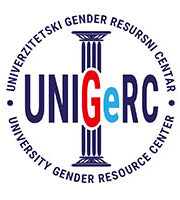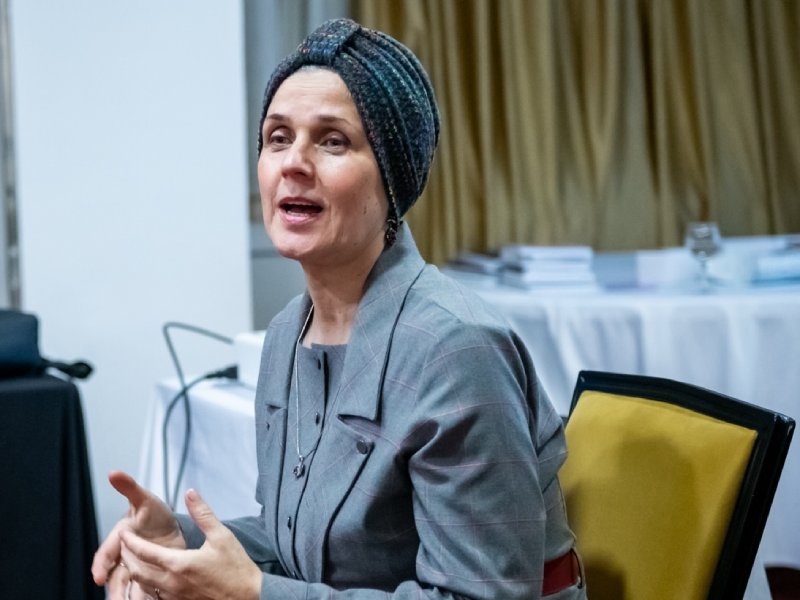Alice Walker (1944), an African-American writer and activist, reminds us of the power we have within ourselves to make changes with words:
“The most common way people lose their power is by thinking they don’t have any.”
On this March 8th, as well as during other important occasions, we often hear women saying they can’t do anything, that they have no power, usually thinking they lack political power but also that it’s not worth fighting because the world is as it is. However, if women had thought this way two hundred years ago, today I wouldn’t be writing this text, girls wouldn’t be studying, working, or have the right to vote, freedom of movement, and other rights and freedoms. Brave women in our history believed they had the power to change things in their environment, so they mobilized other women and men to help them realize a vision of a better and fairer future for women, slaves, workers, minorities, and all other marginalized groups. Because of such women who have indebted us, we commemorate March 8th every year.
International Women’s Day is a celebration of success and achievement, not a consumerist fair where women are patronized and silenced with flowers and gifts to prevent them from asking questions about gender-based discrimination in the family and society, militarization, exploitation, stratification, and divisions, as well as ecological disaster.
When asked why it’s important to commemorate March 8th after women have gained civil and political rights and have the opportunity to educate themselves, work, and engage in politics, we respond that it’s important because most of these rights are only formally guaranteed. In practice, women are still underrepresented in decision-making positions, economically largely dependent on men, suffer from various forms of violence and abuse, and are still not believed until they are killed, and even then society tries to find excuses for the perpetrators. In patriarchy, women are under scrutiny, exposed to double moral standards, and any deviation from the assigned framework is sharply criticized and sanctioned, while excuses and mitigating circumstances are sought for the perpetrators.
How to commemorate March 8th? Nobel Prize winner Malala Yousafzai raised her voice against men who prevented her from getting an education and almost lost her life because of it. When she recovered, she didn’t stop raising her voice, explaining:
“I raise my voice—not because I want to shout, but so that those without a voice can be heard.”
Each of us should ask ourselves how we can raise our voice in the fight for equality and a just society where women’s work and achievements will be valued, and where the lives of women and men will be equally respected. On this March 8th, 2024, in Bosnia and Herzegovina, it is important for us to be reminded of the history of women and their efforts for civil and political rights because without that struggle, women today would not enjoy the rights and freedoms they have. Additionally, it is important to reiterate the causes of economic disenfranchisement and exploitation that hinder women from achieving full equality. Finally, it is crucial to continuously raise awareness about the detrimental consequences and measures we need to undertake to prevent it.
Knowing the history of the struggle for gender equality is crucial.
Those who do not know and respect what our predecessors have done, advocating with their lives, health, and other resources, cannot truly appreciate the rights they enjoy. Rights were not given but hard-won, and they were fought for by brave women, such as Elisabeth Cady Stanton, Susan B. Anthony, and others in America, as well as numerous women in Europe, among whom Clara Zetkin and Rosa Luxemburg stand out. Clara was a member of the Socialist Party of Germany, and later, as a journalism student in Paris, she actively participated in the socialist international. She edited the magazine Die Gleichheit (Equality). She was against bourgeois feminism, believing it divided the working class and did not help workers against capitalist exploitation. Rosa Luxemburg is another important figure to remember. Coming from Poland, she was educated in Switzerland in the field of legal and economic sciences. She became involved in politics and lived in Germany because she believed she needed to be at the center of events. Together with Clara and other socialists, she fought for women’s rights and workers’ rights. Inspired by the ideas of Flora Tristan from France, who wrote the work Workers’ Union (1843), socialist women sought to connect the struggle for civil and political rights with the rights of workers.
In addition to women who have made significant contributions to the fight for equality worldwide, it is important on this day to remember the women who spoke out on these issues and fought for the advancement of women’s status in Yugoslavia and Bosnia and Herzegovina. Among them are numerous partisans and anti-fascist women, as well as women who made breakthroughs in science, politics, and culture, and every woman who made a difference in her family and community, paving the way for future generations to have a better life. This aspect of history still needs to be further explored, and one part of that history is collected in the book “Zabilježene” – Documented (2015), which can be found on the website of the Sarajevo Open Centre, as well as the series #Žene BiH (Women of BiH)- an illustrated book about exceptional women who represent the most significant women of our country. Such books can be a beautiful gift and a way to empower young women and men, because although March 8th is Women’s Day, men should also be involved and support their efforts in building a fairer society for all.
Raise awareness that unpaid women’s labor benefits men and the state
A recently published UN Women study titled “Baseline Study on the Care Economy and Its Impact in Bosnia and Herzegovina”(Maja Arslanagić-Kalajdžić et al., 2023) shows that the highest percentage of unpaid work, including caring for children, elderly and sick family members, cooking, cleaning, laundry, ironing, shopping, and other tasks, is done by women and that compared to other women in developed countries, they spend 6-7 hours a day on these tasks. This is a huge resource that is not socially valued or paid, and the economy of every country relies on women performing these tasks without any compensation.
Imagine if all this work done by women were paid, what would happen?
It has already happened, notably in Iceland in 1975 when women decided not to perform unpaid work. This led to a significant societal upheaval, prompting the state to realize that a collapse could occur if this continued. Namely, the state relies on unpaid labor because otherwise, if all these tasks were paid, women would be more economically independent and their work would be more appreciated. Some countries have calculated this, and the data is staggering. An Oxfam study on unpaid work shows that the annual monetary value of women’s unpaid work is over 10 billion US dollars. Oxfam’s methodology (number of women above 15 years old x number of hours of unpaid work x national minimum wage per hour) showed that in the American context, for example, in 2019, the monetary value of unpaid work amounted to 1.5 trillion dollars, which is 130 times more than Amazon’s net profit in that period. The International Labour Organization, in its analyses, shows that unpaid work accounts for between 10-39% of gross national income.
International Women’s Day is an opportunity for women and men in every household to be reminded that unpaid labor still falls on the shoulders of women, leaving them with no time for other paid and more valued jobs, and that it is necessary for this burden to be evenly distributed.
Gender-based violence costs women, families, and the state
One of the burning issues in Bosnian society, as well as in other societies today, is gender-based violence with a large number of femicides. Although the formal-legal framework has provided legal protection for victims of domestic violence, in practice, women’s bodies, sexuality, and reproductive capacities are still under the control of men. Societal and cultural norms regarding gender roles and desirable masculinities and femininities still determine the lives of many women and men. Women are still expected to be gentle, caring, patient, enduring, to sacrifice themselves and their lives for the family. If they rebel, they are exposed to violence, and in the end, they usually suffer, most often at the hands of a spouse or family member. Unfortunately, women are least secure in their homes because, as the United Nations estimates, almost 60 percent of women’s murders occur within a family or partner relationship, meaning that every 11 minutes, one woman is killed.
In Bosnia and Herzegovina, we do not have statistics but estimates from individual non-governmental organizations based on media reports, so from November 13, 2022, to November 16, 2023, 8 women were killed, as stated in the report of the CURE Foundation, with the note that this is not the whole picture, but only a part of what is recorded in the media. All research on gender-based violence at the global level indicates that every third woman has experienced some form of violence, and in the highest percentage (over 95%), men are the perpetrators.
In marking March 8th, we should remember all the women who have been killed, Edina, Nizama, Emina, Selma, and others, but also talk about the cost of violence. The greatest loss is the life of a woman, and this cannot be materially compensated, nor can the pain and loss experienced by many families be compensated. What can be measured is that the violence experienced by women and children, as well as some men, costs both the victims and families and the state.
A woman who suffers violence must take time off from work and often loses her job. Also, when she goes to the doctor, usually after severe injuries, resources from the healthcare system are spent to address the consequences of violence. Some Western European countries and America have made estimates of the economic expenses in the healthcare system to demonstrate that gender-based violence costs the state and therefore its citizens, as budgets are funded from their taxes. In America, victims of gender-based violence lose over eight billion dollars annually due to absences from work, and on average, 30% of victims lose their jobs. The European Institute for Gender Equality reports that the costs of gender-based violence in Europe exceed 366 billion, with 79% of these costs affecting women.
Therefore, violence incurs costs, and we need to openly discuss it and seek solutions for prevention, because when violence occurs, we are only treating the consequences. Thus, March 8th is an opportunity to address this issue instead of hiding bruises and blood with red carnations, which serve as a warning that a woman may lose her life, her family may lose their mother, daughter, and sister, and the state may lose resources that could be used to improve the standard of living.
Happy International Women’s Day, a holiday of (re)evolution, a holiday reminding us of the achievements and courage of women, but also a holiday for reconsidering our attitudes, lethargy, and helplessness behind which we hide while waiting for someone else to solve these issues.
Published on the portal: https://tacno.net/osmi-mart-praznik-u-kojem-se-postavljaju-pitanja-i-traze-odgovori/



